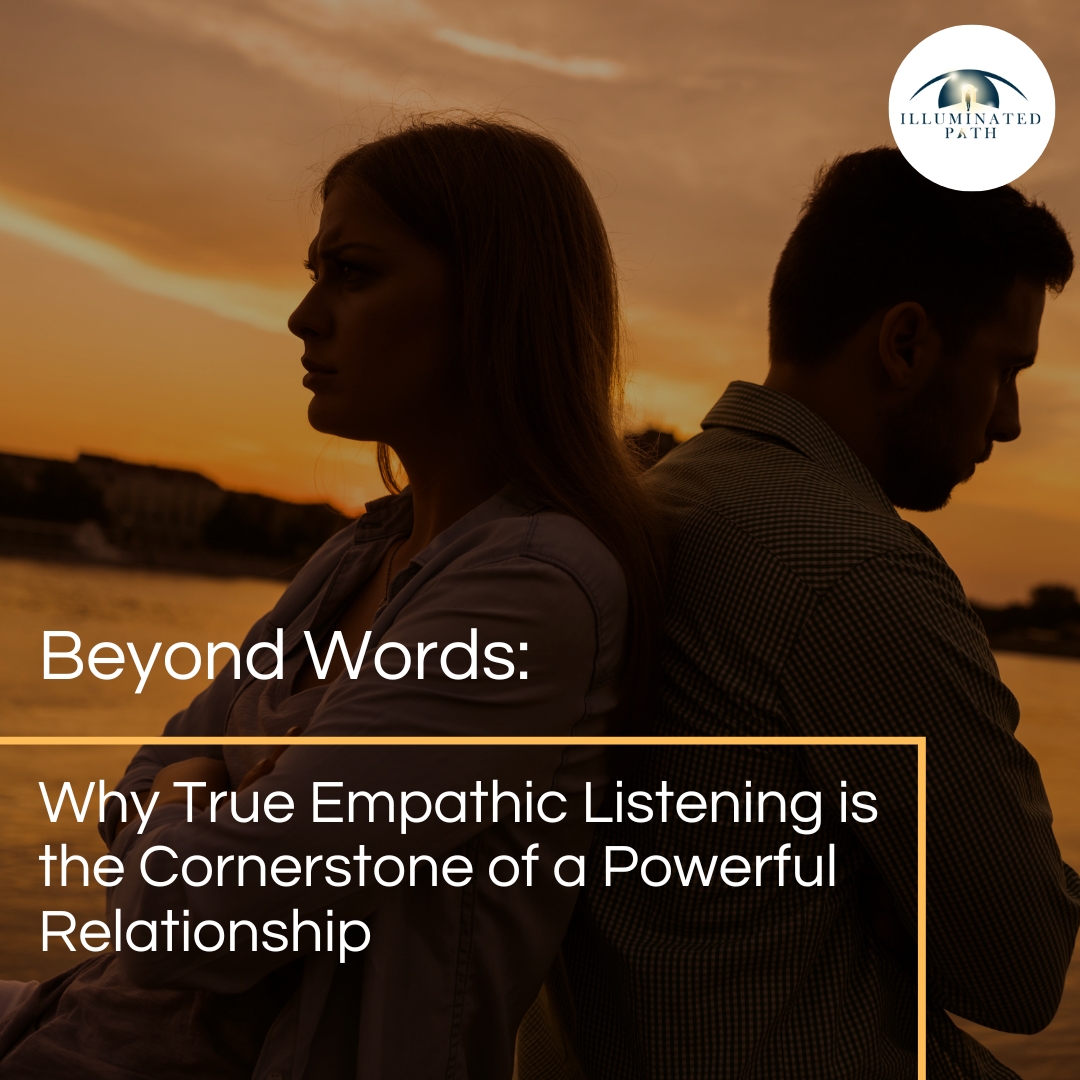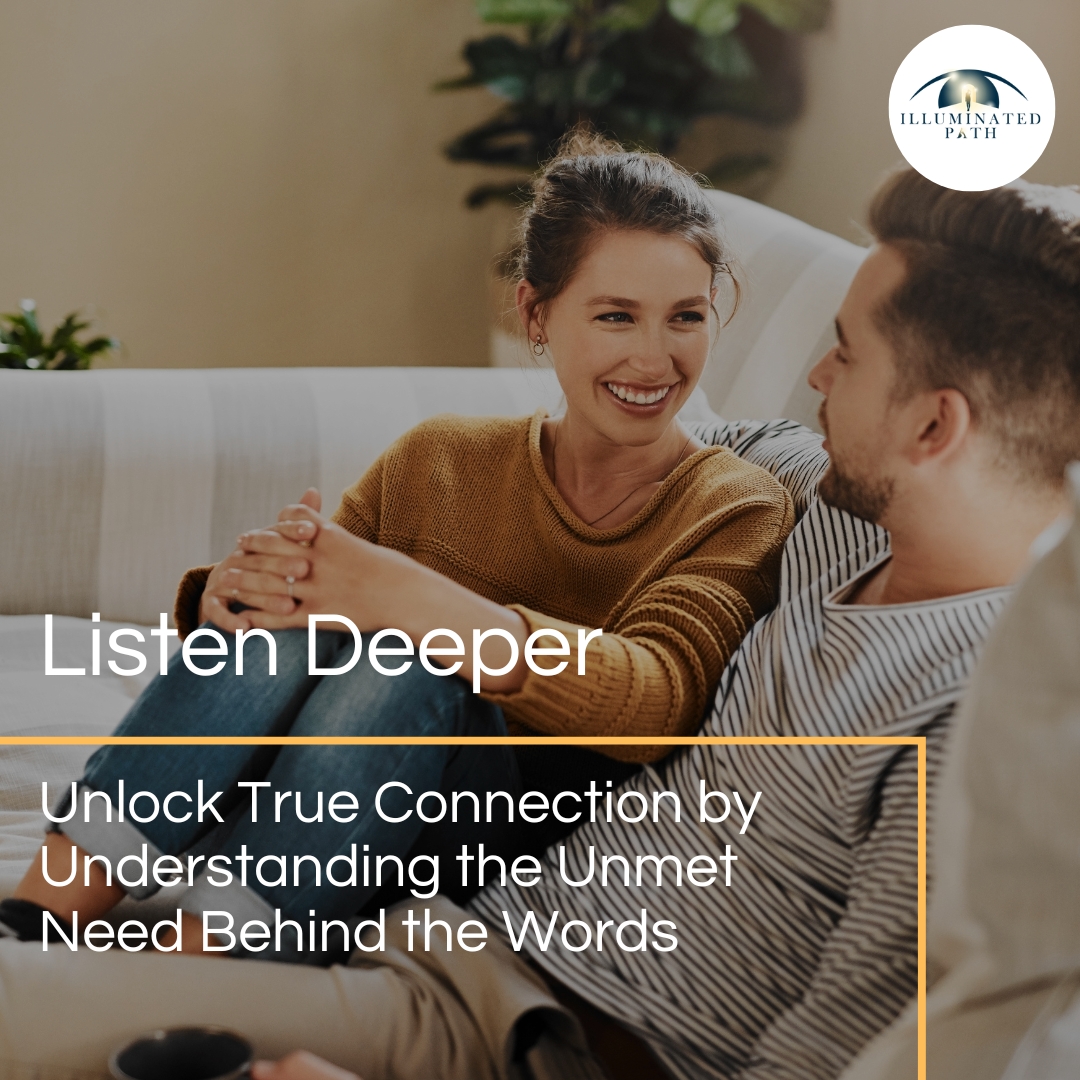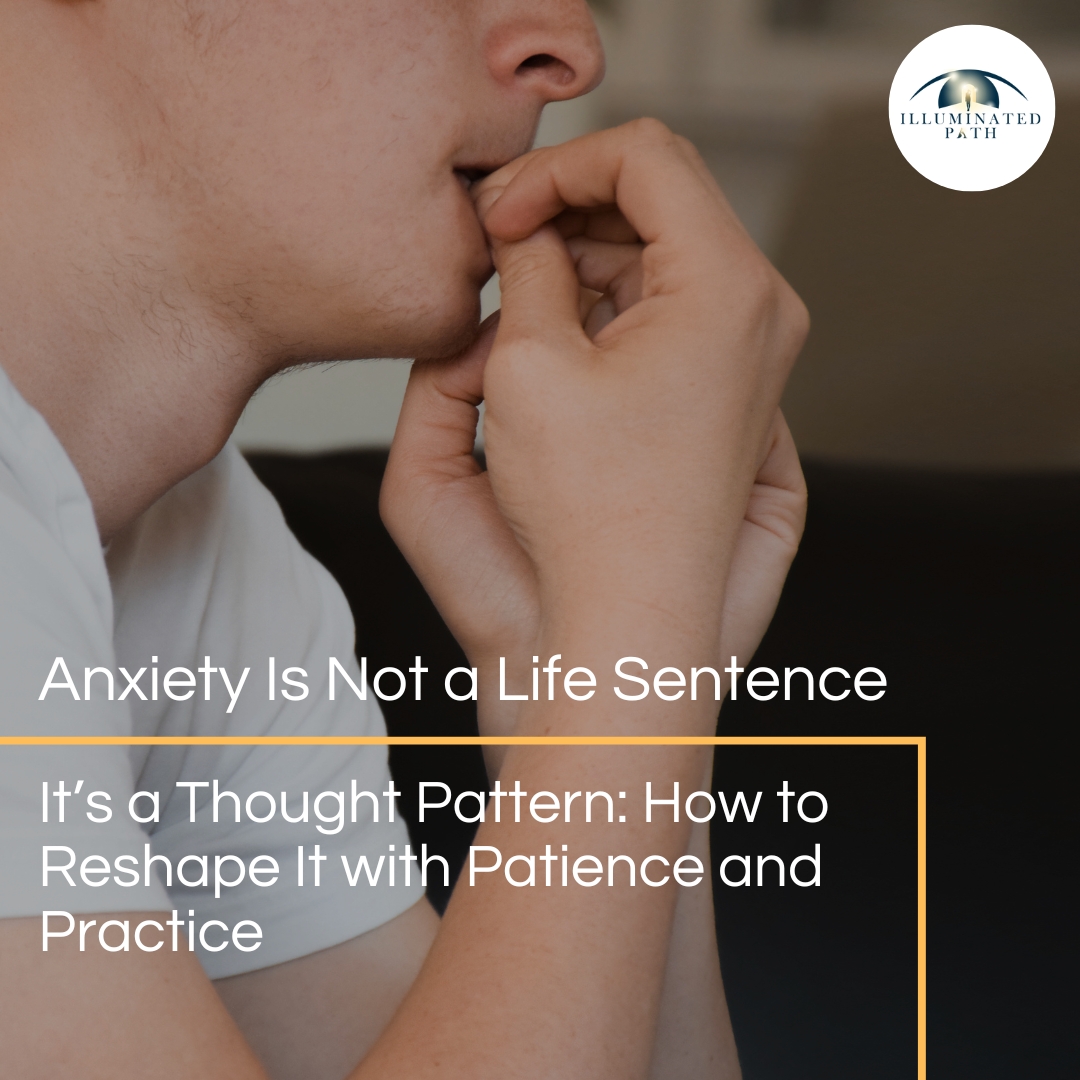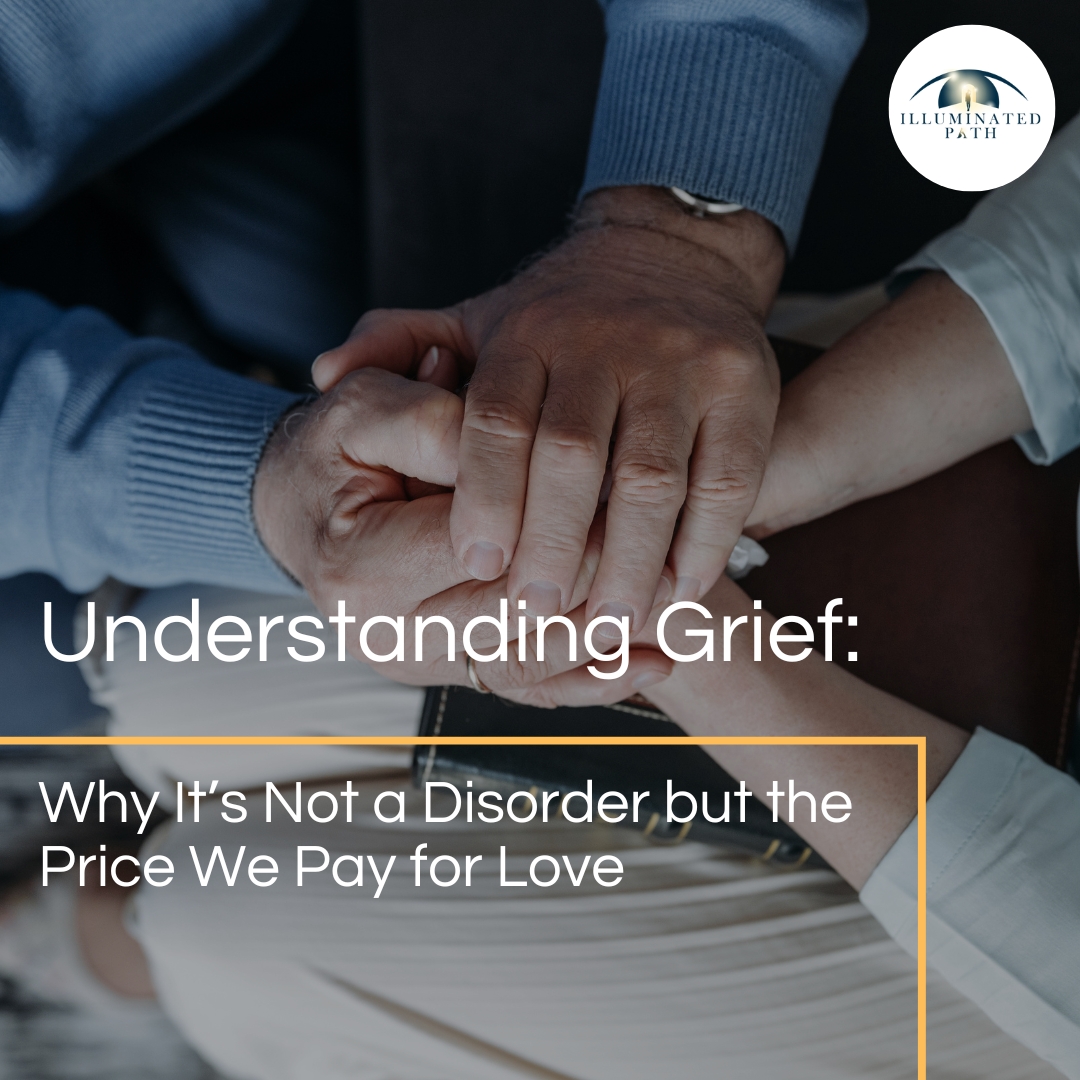
In the intricate dance of human connection, particularly within the intimate sphere of a romantic partnership, we often place immense value on the power of communication. We strive to articulate our needs, share our joys, and express our vulnerabilities through carefully chosen words.
We engage in debates, navigate disagreements, and attempt to bridge the gaps in understanding through the verbal exchange of thoughts and feelings. And yet, amidst this focus on speaking, a far more profound and often overlooked skill lies waiting to unlock the true potential of our relationships: true empathic listening.
It’s a concept often paid lip service to, a bullet point in relationship advice articles, but rarely explored in its full depth and transformative power. We might believe we are good listeners, nodding along, offering occasional interjections, and waiting for our turn to speak.
However, genuine empathic listening transcends mere hearing; it delves into the emotional landscape of our partner, seeking to understand not just the words being spoken, but the unspoken feelings, the underlying needs, and the unique perspective that shapes their experience. It is not simply about absorbing information; it is about actively engaging with another human being on a profound emotional level, creating a safe and validating space where true connection can flourish.
We will explore what it truly means to listen with empathy, differentiate it from other forms of listening, and unpack the myriad benefits it brings to a partnership, ultimately demonstrating why it is often the silence, filled with understanding, that speaks volumes in the language of love.
The Illusion of Listening: Decoding Different Listening Styles
Before we can truly appreciate the power of empathic listening, it’s crucial to recognize the various ways we often engage in what we perceive as listening, and how these fall short of genuine empathy.
-
Passive Listening: This is perhaps the most basic form, where we are physically present but our minds may be elsewhere. We might hear the words, but we are not actively processing them, nor are we attuned to the emotional undertones. It’s akin to background noise, failing to create any real connection.
-
Selective Listening: In this mode, we tune in only to the parts of the conversation that interest us or align with our own agenda. We might filter out information that challenges our beliefs or requires us to step outside our comfort zone, missing crucial aspects of our partner’s experience.
-
Competitive Listening: This style is characterized by a focus on waiting for our turn to speak, often formulating our response while our partner is still talking. The primary goal is to share our own thoughts or opinions, rather than truly understanding the other person’s perspective. Conversations become a battle for airtime, hindering genuine connection.
-
Attentive Listening: This is a step closer to empathic listening, involving paying attention to the words being spoken, making eye contact, and offering verbal cues like “uh-huh” or “I see.” While demonstrating engagement, it may still lack the deeper emotional connection that defines empathy.
True Empathic Listening: Stepping into Your Partner’s Shoes
True empathic listening goes beyond these superficial forms of engagement. It is a conscious and intentional act of fully immersing ourselves in our partner’s experience, striving to understand their world as they perceive it. It involves several key components:
-
Active Focus: Empathic listening demands our complete attention, both mentally and physically. This means minimizing distractions, putting aside our own thoughts and judgments, and being fully present in the moment with our partner. It requires a conscious effort to quiet our internal monologue and direct our energy towards understanding them.
-
Emotional Attunement: It’s not enough to simply hear the words; we must also be attuned to the emotions underlying them. This involves observing their body language, tone of voice, and facial expressions to gain a deeper understanding of how they are feeling. It requires us to tap into our own capacity for empathy and imagine what it might be like to be in their situation.
-
Perspective Taking: Empathic listening necessitates a genuine attempt to see the situation from our partner’s point of view, even if we don’t necessarily agree with it. This involves suspending our own biases and assumptions and trying to understand their motivations, fears, and desires. It’s about acknowledging the validity of their experience, even if it differs from our own.
-
Validation: A crucial aspect of empathic listening is validating our partner’s feelings. This doesn’t mean we have to agree with their perspective or condone their actions, but it does mean acknowledging that their emotions are real and important. Phrases like “That sounds really frustrating” or “I can see why you would feel that way” can create a sense of being heard and understood, fostering emotional safety.
-
Reflecting and Clarifying: To ensure we are truly understanding our partner, empathic listening involves reflecting back what we have heard, both in terms of content and emotion. This might involve paraphrasing their words or summarizing their feelings to confirm our understanding. Asking clarifying questions demonstrates our genuine interest and allows our partner to elaborate further.
-
Non-Judgmental Presence: Empathic listening requires us to approach our partner without judgment or criticism. When we feel judged, we are less likely to open up and share our true selves. Creating a non-judgmental space allows for vulnerability and fosters a deeper sense of trust and intimacy.
The Transformative Power of Empathic Listening in Relationships
When true empathic listening becomes a consistent practice within a relationship, its impact is profound and far-reaching:
-
Deepened Emotional Connection: By truly hearing and understanding our partner’s inner world, we forge a deeper emotional bond. It creates a sense of being seen, understood, and valued, which are fundamental needs in any intimate relationship. This emotional connection acts as a strong foundation, weathering the inevitable storms of life.
-
Enhanced Trust and Security: When we consistently feel heard and validated by our partner, it builds a strong sense of trust and security within the relationship. Knowing that our feelings and experiences are important to our partner creates a safe space for vulnerability and open communication. This trust allows us to navigate difficult conversations with greater ease and resilience.
-
Improved Conflict Resolution: Empathic listening is a powerful tool for navigating disagreements and resolving conflicts. By truly understanding our partner’s perspective, even when it differs from our own, we can approach conflict with greater empathy and a willingness to find mutually agreeable solutions. It shifts the focus from winning an argument to understanding each other’s needs and finding common ground.
-
Increased Intimacy and Vulnerability: When we feel safe and understood, we are more likely to open up and share our deepest thoughts and feelings. Empathic listening creates an environment where vulnerability is welcomed and cherished, leading to greater emotional and even physical intimacy.
-
Stronger Sense of Partnership: When both partners actively practice empathic listening, it fosters a stronger sense of teamwork and partnership. It reinforces the idea that you are in this together, supporting and understanding each other through life’s challenges and triumphs.
-
Reduced Misunderstandings and Frustration: Many conflicts and frustrations in relationships stem from feeling unheard or misunderstood. Empathic listening helps to minimize these misunderstandings by ensuring that both partners are truly grasping each other’s perspectives and intentions.
-
Increased Feelings of Love and Appreciation: When our partner actively listens to us with empathy, it sends a powerful message that they care about our well-being and value our experiences. This fosters feelings of love, appreciation, and connection.
Cultivating the Art of Empathic Listening: Practical Steps
Developing the skill of true empathic listening is an ongoing process that requires conscious effort and practice. Here are some practical steps you can take to cultivate this vital skill in your relationship:
-
Practice Active Attention: When your partner is speaking, make a conscious effort to focus solely on them. Minimize distractions like your phone or other thoughts. Make eye contact (if comfortable for both of you) and show physical cues of engagement, such as nodding.
-
Listen with Your Whole Body: Pay attention not just to the words, but also to your partner’s body language, tone of voice, and facial expressions. These nonverbal cues can provide valuable insights into their emotional state.
-
Suspend Judgment: Consciously try to put aside your own opinions, biases, and judgments while your partner is speaking. Focus on understanding their perspective without immediately evaluating or criticizing it.
-
Seek to Understand, Not to Respond: Resist the urge to formulate your response while your partner is still talking. Instead, focus solely on understanding their message and their underlying emotions.
-
Reflect and Paraphrase: Periodically reflect back what you have heard in your own words to ensure you have understood correctly. For example, you might say, “So, it sounds like you’re feeling really overwhelmed with work right now.
-
Ask Clarifying Questions: Don’t be afraid to ask open-ended questions to gain a deeper understanding of your partner’s thoughts and feelings. Questions like “Can you tell me more about that?” or “How did that make you feel?” can encourage them to elaborate.
Validate Their Feelings: Acknowledge and validate your partner’s emotions, even if you don’t fully understand or agree with them. Phrases like “That sounds really tough” or “I can see why you’d be upset” can be incredibly validating.
-
Practice Empathy Exercises: Try to consciously put yourself in your partner’s shoes and imagine their experience from their perspective. Consider their background, their values, and their past experiences.
-
Be Patient: Developing empathic listening skills takes time and practice. Be patient with yourself and your partner as you both learn and grow in this area.
-
Seek Feedback: Ask your partner for feedback on your listening skills. Be open to hearing their perspective and willing to make adjustments.
The Silence That Speaks Volumes
In a world often dominated by the need to express ourselves verbally, it’s easy to overlook the profound power of truly listening. True empathic listening is not a passive act; it is an active and intentional engagement with our partner’s inner world. It is about going beyond the surface of words to connect with the underlying emotions, needs, and perspectives that shape their experience. When we prioritize empathic listening in our relationships, we create a foundation of trust, understanding, and emotional intimacy that can weather any storm.
It is in the quiet moments of truly hearing and being heard that the deepest connections are forged, and the most powerful expressions of love are communicated. Beyond the spoken words, it is the silence filled with empathy that truly speaks volumes in the enduring language of a powerful and fulfilling relationship. By cultivating this essential skill, we move beyond simply coexisting to truly understanding and cherishing the unique and precious bond we share with our partner.

The Author
Dr. Shadi Souferian Psy. D.
Licensed Clinical Psychologist
Therapist And Psychologist in Los Angeles And Beverly Hills.






